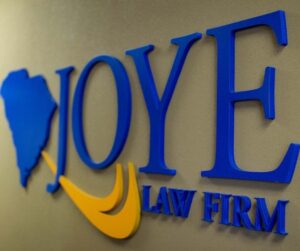
Social Security Disability (SSD) Insurance provides benefits to people who have worked long enough and paid Social Security taxes. This is much different than Supplemental Security Income (SSI), which is based on a person’s financial need.
According to a recent Annual Statistical Report on the Social Security Disability Insurance Program , there were 10,059,166 people receiving SSD benefits, and 86.4 percent were disabled workers while 11.0 percent were disabled adult children and 2.6 percent were disabled widow(er)s. South Carolina had 200,034 beneficiaries, which included 174,597 disabled workers, 18,919 disabled adult children, and 6,518 disabled widow(er)s.
You have many different ways to apply for SSD benefits, but you should know that many initial claims are denied. It can be hard for people to understand the reasons for their denials and many don’t know how to remedy the issues. Having legal representation will significantly improve your chances of obtaining benefits because a lawyer has usually handled many claims similar to your own and understands how to get around any issues that may arise with the Social Security Administration (SSA).
Joye Law Firm can help you find legal representation for your Social Security Disability claim. We have received an A+ rating from the Better Business Bureau (BBB) and have had several of our attorneys named Super Lawyers. Call (877) 941-1019 or contact us online to set up a free consultation.
How Can a Social Security Disability Attorney Help Me In Clinton?
A lawyer will be able to help you be presenting the best possible case for SSD benefits at a hearing or appeal. An attorney will know what kinds of medical evidence need to be secured to help prove the severity of a disability.
Social Security can occasionally involve complex requirements for exams that are confusing to most people. A lawyer knows when you may need to undergo additional testing and help you schedule all necessary appointments.
The attorney will also be able to obtain the most favorable disability onset date, which helps you recover as many benefits as possible. When you have a hearing regarding your SSD benefits, the lawyer can also review the questions you are likely to be asked and help you prepare to answer them.
You will also want to retain legal counsel so you can be sure that you can present the most persuasive argument for your disability claim. An attorney will determine whether you have a condition listed in the SSA “Blue Book,” you are unable to do past work, or that you cannot even do a sedentary (sit-down) job.
If your SSD claim was denied or if you need help filing for SSD benefits, do not hesitate to an experienced law firm. For help, contact Joye Law FIrm.
How to Apply For Social Security Disability Benefits in Clinton
You generally have three ways to file a claim for SSD benefits. You can apply online by visiting the SSA website, you can call the SSA, or you can visit the local SSA office. The SSA has an office location in Clinton located in the Laurens County Health and Human Services Complex, across from the Laurens County Chamber of Commerce:
292 Professional Park Rd.
Clinton, SC 29325
(866) 526-9854
The office is open weekdays from 9 a.m. to 4 p.m., but it is closed on the weekends. You should apply for SSD benefits as soon as you become disabled.
The SSA may ask you to provide certain documents proving your eligibility, such as:
- Birth certificate or proof of birth
- Proof of U.S. citizenship
- Proof of lawful alien status (if the individual was not born in the U.S.)
- S. military discharge paper(s)
- W-2 forms(s) or self-employment tax returns
- Adult Disability Report
- Medical evidence
- Proof of any workers’ compensation benefits you received
Applying for SSD benefits will require you to complete a Form SSA-16, Application for Disability Insurance Benefits. The form is seven pages long and includes numerous questions about such subjects as citizenship, other names the applicant has used, and information about a spouse.
What Medical Conditions Qualify for Social Security Disability?
The SSA has an impairment listing manual called the Blue Book that includes a number of impairments, and a person automatically qualifies for SSD benefits if their condition meets the specified criteria for a listing. Impairments are broken into adult listings and child listings.
The adult listings include the following impairments:
- Musculoskeletal System impairments such as soft tissue injuries, disorders of the spine, fracture of an upper extremity, and amputation
- Special Senses and Speech impairments such as loss of speech, loss of visual efficiency, and hearing loss treated with cochlear implantation
- Respiratory Disorders such as asthma, chronic respiratory disorders, cystic fibrosis, and respiratory failure
- Cardiovascular System impairments such as peripheral arterial disease, chronic heart failure, and heart transplant
- Digestive System impairments such as liver transplant, chronic liver disease, and inflammatory bowel disease (IBD)
- Genitourinary Disorders such as complications of chronic kidney disease, nephrotic syndrome, and chronic kidney disease with kidney transplant
- Hematological Disorders such as repeated complications of hematological disorders, hemolytic anemias, including sickle cell disease, and disorders of bone marrow failure
- Skin Disorders such as burns, dermatitis, and chronic infections of the skin or mucous membranes
- Endocrine Disorders such as hyperglycemia, pituitary gland disorders, hypoglycemia, and thyroid gland disorders,
- Congenital Disorders that Affect Multiple Body Systems such as non-mosaic Down syndrome (chromosome 21 trisomy or chromosome 21 translocation)
- Neurological Disorders such as coma or persistent vegetative state, epilepsy, traumatic brain injury (TBI), cerebral palsy, and multiple sclerosis
- Mental Disorders such as eating disorders, autism spectrum disorder, neurocognitive disorders, anxiety and obsessive-compulsive disorders, and intellectual disorders
- Cancer (Malignant Neoplastic Diseases) such as malignant melanoma, leukemia, soft tissue sarcoma, lymphoma, and cancer treated by bone marrow or stem cell transplantation
- Immune System Disorders such as human immunodeficiency virus (HIV) infection, inflammatory arthritis, and systemic vasculitis
A person can be awarded SSD benefits if the SSA considers aspects of their condition to be medically equivalent to the criteria in the Blue Book listing, also called “equaling a disability listing.” You could also be eligible if your unlisted disability prevents you from working.
SSD Claim Appeals and Common Causes for Denied Appeals
People can have SSD claims denied for various reasons. Some of the most common include, but are not limited to:
- Applicant earns more than substantial gainful activity limit of $1,090 per month
- Insufficient work credits
- Medical condition not severe enough
- Failure to follow medical treatment
- Failure to cooperate with SSA
- SSA cannot contact you
- Lack of medical evidence
- Criminal conviction
- Alleged fraud
- Disability based on drug addiction or alcoholism
When your request for benefits is denied, you have 60 days from the date you receive notice of your decision to request an appeal. The four levels of appeal to an SSD case are reconsideration, hearing by administrative law judge, review by the Appeals Council, and federal court review.
Reconsideration involves a complete review of your case by someone who did not participate in the original decision. When you disagree with a reconsideration decision, you can ask for a hearing before an administrative law judge, after which you will be mailed a copy of the judge’s decision.
When you disagree with a hearing decision, you can ask for a review by Social Security’s Appeals Council. The Appeals Council can deny a request when it believes the hearing decision was correct.
The Appeals Council can decide your case itself or return the case to an administrative law judge for further review. If you disagree with the Appeals Council’s decision or if the Appeals Council decides not to review your case, you can file a lawsuit in a federal district court.
Should I File a Lawsuit in Federal Court Against the Social Security Administration?
 You should only file a lawsuit against the SSA if you disagree with the Appeals Council’s decision or if the Appeals Council decides not to review your case. It is the final level of the appeals process.
You should only file a lawsuit against the SSA if you disagree with the Appeals Council’s decision or if the Appeals Council decides not to review your case. It is the final level of the appeals process.
You must file your civil action within 60 days of receiving notice of the Appeals Council’s decision. You will file your civil action in the district court for the judicial district in which you live or where you have your principal place of business.
Find a Clinton, S.C. Social Security Disability Lawyer
An experienced Social Security Disability law firm is committed to disabled clients get the benefits they are entitled to. We can help connect you to an attorney today. To speak with a knowledgeable member of our team, call (877) 941-1019 or contact us online to receive a free consultation.
Joye Law Firm Clinton Office Location
Appointment Only
509 N Broad St,
Clinton, SC 29325
(864)697-1375




























